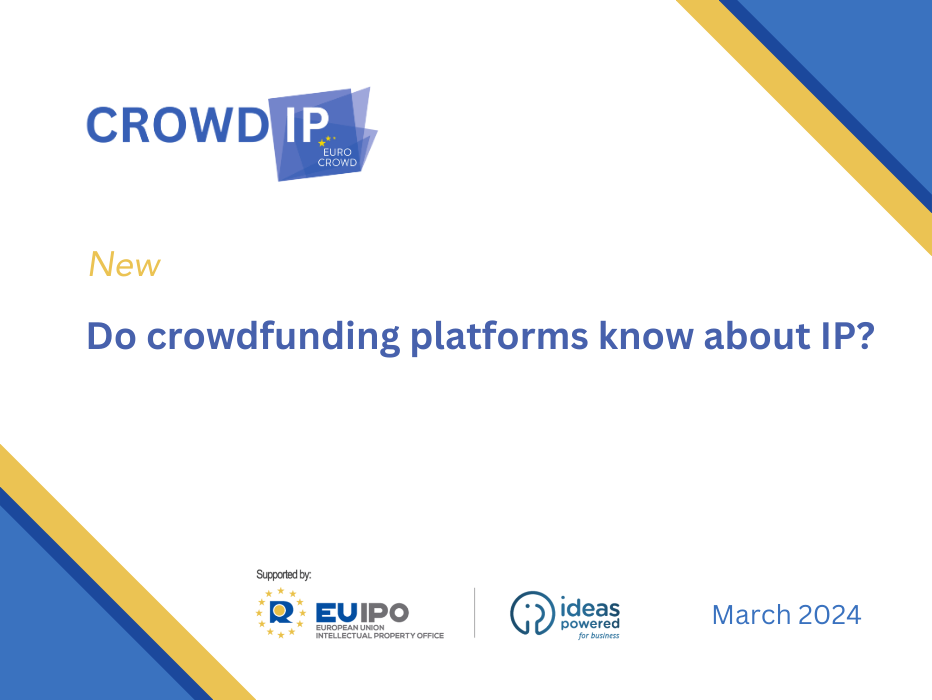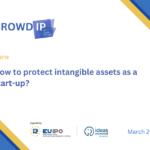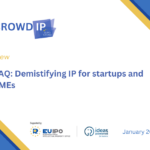CrowdIP
Do crowdfunding platforms know about IP?

The answer to this needs careful consideration. Not all crowdfunding platforms deal with markets concerned with intellectual property (IP), but those that engage in startup funding within innovative and technology driven sectors will typically understand IP, especially as it pertains to the projects seeking funding on their platforms. For the startup, crowdfunding can only work if there can be public communication about the products or services and their value added to the market. Some startups, especially where IP protection has not yet been achieved may need to consider more carefully than others. Here are several ways in which crowdfunding platforms are likely to be aware of and engaged with IP:
Project Submission Process: Crowdfunding platforms often require project creators to provide detailed information about their projects. This may include information about any intellectual property they own or intend to utilize for the project.
Project Guidelines: Platforms usually have guidelines and terms of service that address issues related to intellectual property. These guidelines may outline the platform's expectations regarding the use of IP, including potential infringement concerns.
Educational Resources: Some crowdfunding platforms offer educational resources to project creators. This may include guidance on navigating intellectual property issues, understanding copyright and trademark laws, and the importance of protecting their own IP.
Project Verification: Crowdfunding platforms may implement a verification process to ensure that projects adhere to legal and ethical standards. This process may involve checking for any potential IP violations or disputes.
Legal Compliance: Platforms are likely to have legal teams or consultants who ensure that the platform itself complies with relevant laws, including those related to intellectual property. This helps mitigate legal risks for both the platform and the project creators.
Communication with Project Creators: Crowdfunding platforms often communicate directly with project creators. They may advise creators on best practices, legal considerations, and potential pitfalls related to intellectual property.
Project Success Stories: Platforms may highlight successful projects that have effectively navigated IP challenges. These success stories can serve as examples for other creators and underscore the importance of addressing IP issues.
Risk Mitigation Strategies: To maintain the credibility and reputation of their platforms, crowdfunding platforms are likely to have strategies in place to mitigate the risk of IP-related disputes. This could include measures to address copyright infringement claims, trademark issues, or other IP concerns.
Terms of Use for Backers: Crowdfunding platforms often have terms of use for backers as well. These terms may include information about intellectual property rights related to rewards or products offered by project creators.
While crowdfunding platforms may have a general understanding of IP, the level of awareness and the specific measures taken can vary. It's essential for both project creators and backers to familiarize themselves with the platform's policies and guidelines regarding intellectual property before participating in or launching a crowdfunding campaign. If in doubt, always seek professional advice.
Disclaimer: The content provided by EUROCROWD in this post is intended for general informational purposes only. This information is not intended to constitute legal advice or provide bespoke solutions to specific problems. EUROCROWD endeavours to offer guidance to help individuals and businesses protect their intellectual property (IP). However, readers are expressly advised that the information presented should not be considered a substitute for professional advice or legal counsel. While we strive to ensure the accuracy and timeliness of the information shared, laws and regulations may change, and the content may not reflect the most current legal standards or interpretations. Your first step might be to visit EUIPO - Ideas Powered for Business: The European Union Intellectual Property Office (EUIPO) offers a platform called Ideas Powered for Business. It provides tools and resources for businesses to manage and protect their IP https://business.ideaspowered.eu



